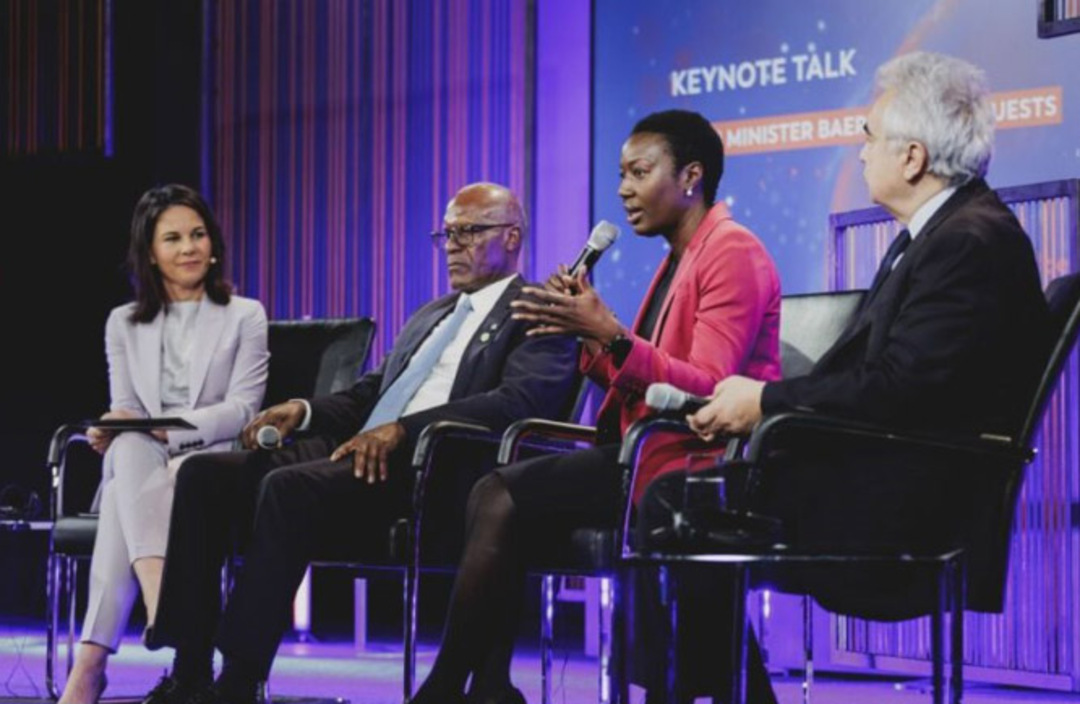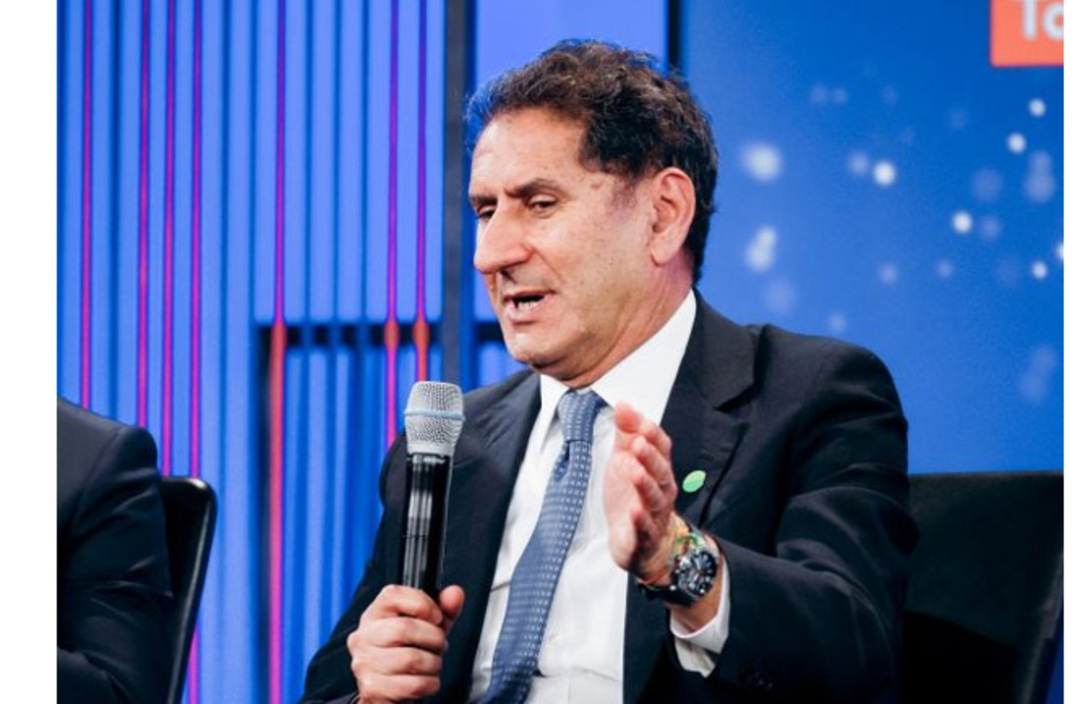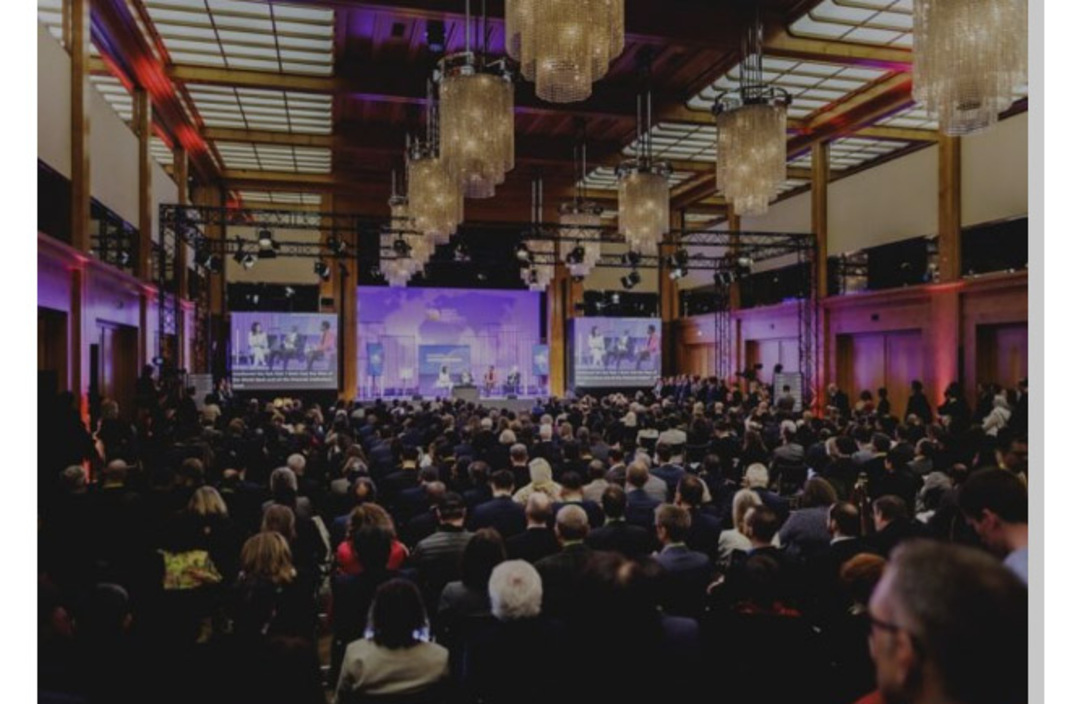-
Disparities in Renewable Energy Discourse at the 10th Berlin Energy Transition Dialogue

Was this a pragmatic dialogue? This is the question that lingers in conversations with most scholars, pundits and critics in the energy sector as the 10th Berlin Energy Transition Dialogue (BETD) comes to a close.
During the ongoing dialogue, a look into the International Renewable Energy Agency (IRENA)… “The Volume 2 of the World Energy Transitions Outlook 2023 contends that current transition narratives may not resonate with all stakeholders, largely due to their omission of central socio-economic dimensions. Bridging gaps in climate policy ambition and fostering essential structural changes necessitates unparallel global collaboration.”
To understand more on this, I speak to the Director General International Renewable Energy Agency (IRENA) Francesco La Camera who opines that “If we want to be in line with what we need in limiting global temperature to within 1.5° of pre-industrial levels we have to install 1100 GW per year which means more than double what we have done in the last one year. We have to abandon this concept of neutral technology…technology neutrality…carbon neutrality doesn’t exist…and have to understand that every system needs structures that sustain the system itself”

Francesco La Camera Director-General of the International Renewable Energy Agency (IRENA)
A report from the International Renewable Energy Agency (IRENA) avers “An average of almost 1,100 GW of renewables capacity must be installed annually by 2030 – more than double the record set in 2023. Annual investments in renewable power generation must surge from USD 570 billion in 2023 to USD 1550 billion on average between 2024 and 2030.”
Auma Obama a distinguished scholar, who attended the 2-day conference in Berlin expresses her concerns.
This makes achieving the global target set at COP28 to triple renewable power capacity by 2030 look like a mirage or a distant dream even though seen as feasible with the right policy support and investments.
I later have a sit down with the indomitable Ndiarka Mbodji, the Managing Director, Kowry Energy Services that enables access to clean energy. Ndiarka, a seasoned leader with over 23 years across various industries, is not shy to point out the glaring gaps in renewable energy financing and capacity building.
The power in most major cities is not reliable, which impacts immensely on businesses and industries. According to Ndiarka, the financing coming into renewable energy is insufficient compared to the total energy finance, with the majority of investment concentrated in developed countries.
“The main issue there is perceived risk when you come into emerging and developing countries. We use financing instruments which were developed after the second world war to rebuild Europe and also to stabilize the west, and we use that to apply the same financial instruments into emerging and developing countries, which obviously does not work.”
The dialogue in energy financing is that the higher the financing cost, the more difficult it is to access the finances. What most countries are now pointing out is that there are commitments in energy financing, but the funds are trickling down too slowly.
“We don’t want commitments, the topic really is about implementing.”
The call is that countries don’t want any more commitments; they just want what they were promised to receive, as this will be a tremendous improvement if they can get a hold of that money.
“For a small company accessing a grant you have to fill more paperwork than it is to build a nuclear power plant.” Ndiarka Mbodji
German Vice Chancellor Robert Habeck’s pragmatic opening statement is on the need to tap into renewable energies and a clarion call for concerted efforts among nations to transition to renewable energy.
This comes at a time when countries' dependence on fossil fuels remains high, with a need to reduce reliance and substitute with renewable energy sources.

In a side-event with young key-note representatives from various countries, the social impact of renewable energy adoption is notable, prompting the German Vice Chancellor to call for fair investment to fully unlock the potential of renewable resources.
As of this dialogue, according to the Kleinman Center for Energy Policy, renewable energy sources are increasingly being adopted globally, with significant progress made in transitioning to clean energy. However, innovative approaches are necessary to harness diverse renewable energy resources effectively and accelerate the transition to a sustainable energy future.
PY:Amina Younis
Tags
You May Also Like
Popular Posts
Caricature
BENEFIT Sponsors BuildHer...
- April 23, 2025
BENEFIT, the Kingdom’s innovator and leading company in Fintech and electronic financial transactions service, has sponsored the BuildHer CityHack 2025 Hackathon, a two-day event spearheaded by the College of Engineering and Technology at the Royal University for Women (RUW).
Aimed at secondary school students, the event brought together a distinguished group of academic professionals and technology experts to mentor and inspire young participants.
More than 100 high school students from across the Kingdom of Bahrain took part in the hackathon, which featured an intensive programme of training workshops and hands-on sessions. These activities were tailored to enhance participants’ critical thinking, collaborative problem-solving, and team-building capabilities, while also encouraging the development of practical and sustainable solutions to contemporary challenges using modern technological tools.
BENEFIT’s Chief Executive Mr. Abdulwahed AlJanahi, commented: “Our support for this educational hackathon reflects our long-term strategic vision to nurture the talents of emerging national youth and empower the next generation of accomplished female leaders in technology. By fostering creativity and innovation, we aim to contribute meaningfully to Bahrain’s comprehensive development goals and align with the aspirations outlined in the Kingdom’s Vision 2030—an ambition in which BENEFIT plays a central role.”
Professor Riyadh Yousif Hamzah, President of the Royal University for Women, commented: “This initiative reflects our commitment to advancing women in STEM fields. We're cultivating a generation of creative, solution-driven female leaders who will drive national development. Our partnership with BENEFIT exemplifies the powerful synergy between academia and private sector in supporting educational innovation.”
Hanan Abdulla Hasan, Senior Manager, PR & Communication at BENEFIT, said: “We are honoured to collaborate with RUW in supporting this remarkable technology-focused event. It highlights our commitment to social responsibility, and our ongoing efforts to enhance the digital and innovation capabilities of young Bahraini women and foster their ability to harness technological tools in the service of a smarter, more sustainable future.”
For his part, Dr. Humam ElAgha, Acting Dean of the College of Engineering and Technology at the University, said: “BuildHer CityHack 2025 embodies our hands-on approach to education. By tackling real-world problems through creative thinking and sustainable solutions, we're preparing women to thrive in the knowledge economy – a cornerstone of the University's vision.”
opinion
Report
ads
Newsletter
Subscribe to our mailing list to get the new updates!





















